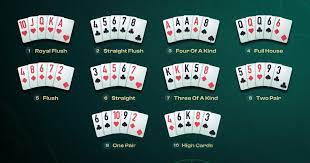
Badugi Poker
Flexibility in strategy is essential, especially given the game’s reliance on both luck and skill 188BET.
Odds, Probabilities, and Expected Value in Badugi Poker
Knowledge of odds and probabilities significantly influences decision-making in Badugi Poker. Understanding the likelihood of completing particular hands allows strategic adjustments and better risk management.
Calculating Hand Improvement Chances
Estimating the probability of improving your BADUGI hand depends on the current hand state:
- The number of cards to draw.
- Cards remaining in the deck.
- The specific cards you desire to complete your hand.
For example, if holding two suited cards of different ranks, the chance of drawing two suitable cards to form a perfect Badugi can be calculated based on remaining unseen cards.
Key Probability Tables and Data
| Situation | Probability of Completing a Badugi |
|---|---|
| Holding two suited cards, drawing two | Approximately 35-40% |
| Holding one suited card, drawing three | Around 55-60% |
| Holding no suited cards, drawing four | About 25-30% |
These figures vary depending on the exact cards held and the number of players involved.
Incorporating Odds into Decision-Making
Integrating the above probabilities helps inform:
- When to continue drawing or stand pat.
- Whether to bet aggressively or proceed cautiously.
- How much to wager based on hand potential.
Calculating expected value (EV) for different scenarios enables more mathematically sound choices, though intuition and experience also play vital roles Badugi Poker.
Risk Management and Variance
Like all casino games, Badugi Poker entails variance. Even with favorable odds, unlucky draws can undermine your strategy. Managing bankroll and avoiding tilt are critical, as well as recognizing situations where odds strongly favor folding.
Comparing Badugi with Other Poker Variants
To appreciate Badugi Poker fully, it’s helpful to compare it with traditional poker games such as Texas Hold’em or Omaha. Each variant offers unique strategies, hand structures, and player dynamics.
Similarities and Differences
| Aspect | Badugi | Texas Hold’em | Omaha |
|---|---|---|---|
| Hand Ranking Focus | Low, unique suits/ranks | High hands (pairs, straights, etc.) | High hands, four hole cards |
| Number of Cards | Four cards per hand | Two hole cards | Four hole cards |
| Draw Phase | Yes, multiple draws | No, community cards | No, community cards |
| Betting Structure | Varies (limit/no-limit) | Fixed limit/no-limit | Fixed limit/no-limit |
| Strategic emphasis | Suit and rank elimination | Hand strength, position | Hand strength, draws |
While Texas Hold’em and Omaha rely heavily on hand strength and community cards, Badugi demands a different tactical mindset centered around low, suited, and non-duplicate hands.
Strategic Implications
- Badugi requires players to discard high or duplicated cards early and plan their draws meticulously.
- The game’s speed and unique hand rankings make it more unpredictable and require a flexible approach.
- Unlike traditional poker, where aggression can dominate, Badugi often rewards patience and precise hand improvement.



